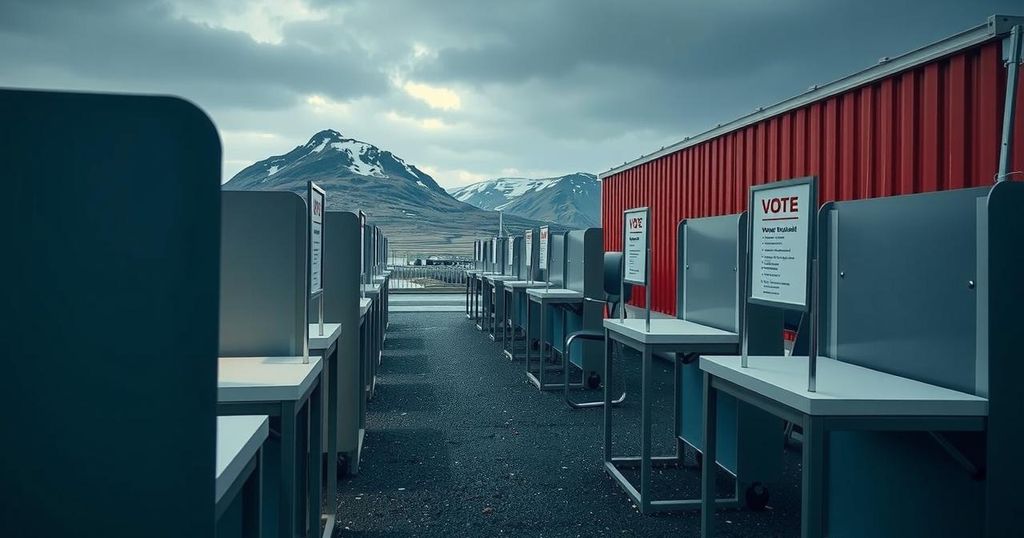Iceland’s Parliamentary Election: Navigating Economic Challenges and Political Instability

Iceland is conducting a parliamentary election due to the collapse of Prime Minister Bjarni Benediktsson’s government, triggered by disputes over economic and immigration issues. The election will fill 63 seats in the Althingi and may face weather-related voting challenges. With ten parties on the ballot, this election is critical for addressing societal pressures stemming from the economic fallout since the 2008 financial crisis.
Iceland is holding a parliamentary election following the collapse of Prime Minister Bjarni Benediktsson’s coalition government, which faced challenges concerning the economy, immigration, and the repercussions of volcanic activity. This election marks the sixth general election since the 2008 financial crisis, a period that has been characterized by significant political instability. The voting population will determine the composition of the Althingi, Iceland’s parliament, electing 63 representatives from ten competing parties under a mixed electoral system. Polling conditions may be impacted due to severe weather, with heavy snowfall potentially obstructing voters’ access to polling stations. Despite the cold conditions, voter turnout has historically been high, with approximately 80 percent participating in the last election.
The necessity for this election arises from a coalition crisis that has seen Prime Minister Benediktsson’s government disband due to disagreements over pressing issues, including economic management and immigration policy. Following the devastating financial crisis of 2008, Iceland has experienced a political landscape shift, resulting in new parties emerging to challenge traditional power dynamics. Increased living costs, demands from a growing asylum seeker population, and recent volcanic activity have compounded existing socioeconomic pressures, making this election critical for resolving these ongoing issues.
The upcoming parliamentary election in Iceland represents a pivotal moment for the nation’s political future amidst economic challenges and societal pressures. With a burgeoning number of parties vying for influence, the election outcome will likely shape Iceland’s approach to pressing concerns such as inflation, housing shortages, and immigration policies. The ability of new representatives to address these challenges will determine the stability of government and public trust moving forward.
Original Source: www.aljazeera.com







